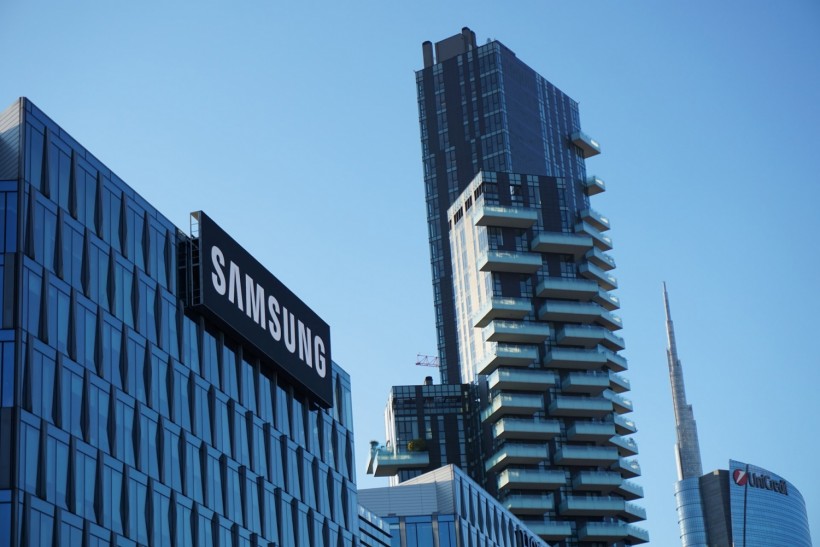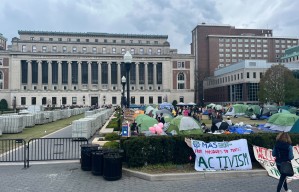
(Photo : Babak Habibi on Unsplash)
In the eleven years since its establishment in 2011, contract development and manufacturing organization (CDMO) Samsung Biologics has developed a reputation for its ability to construct GMP (good manufacturing practices) facilities at an unprecedented rate. The CDMO built three plants in its first seven years of operation, with 364,000 liters of capacity at its Songdo, South Korea, headquarters. Samsung Biologics is now nearing the completion of its fourth plant in Songdo. The plant, which has begun partial operations in October 2022 and will commence full operations in 2023, will provide an additional 256,000 liters of capacity in Songdo, equipping Samsung Biologics with the most capacity - 620,000 liters - at any single location in the world.
At a press conference at the 2022 J.P. Morgan Healthcare Conference, Samsung Biologics CEO John Rim emphasized that the rate at which Samsung Biologics has been able to construct these facilities distinguishes it from competing CDMOs.
"It took four years for our competitors to build [a facility], but it's taking 32 months for us, shortening the construction period by 40%," said Rim.
Beginning Partial Operations at Plant 4
Samsung Biologics has brought six 10,000-liter bioreactors online for GMP production of recombinant proteins when the fourth plant begins partial operations in October. The CDMO has already secured manufacturing contracts in advance of the plant's launch, and began working with partners on large-scale manufacturing projects from the start.
"The company has secured a number of large-scale manufacturing contracts with active presales activities for Plant 4, and at the close of Q2, in the first half of 2022 alone, the company had secured over $7.9 billion in sales backlog, including deals with Janssen, Merck, GSK, [Eli Lilly and Company], and Novartis, to name a few," said Rim in a statement on the progress of the CDMO's fourth plant.
Construction on Plant 4 began in November 2020, which means that Samsung Biologics was able to have the plant ready for GMP operations in just under two years.
"I mean, that's phenomenal... I would say there's nowhere in the world that's going to have a facility up and running in two years," said Rim in a recent interview.
Rim explained that the speed of construction of the CDMO's facilities fits within a broader focus on efficient growth at Samsung Group. He noted that Samsung has a history of constructing large semiconductor manufacturing facilities at unprecedented rates. In addition, Samsung Biologics was able to draw on existing facility designs and receive support from Samsung Engineering to accelerate the process of design and construction.
Another contributing factor to the speed of Plant 4's development was Samsung Biologics' decision to build the plant in South Korea. After considering overseas options, the CDMO opted to continue to build capacity in Songdo.
"What we came to at that time was that the speed to construct the facility and get it up and running was much more secure in Korea than it was in the United States," said Rim. He explained that beginning construction of the facility during the COVID-19 pandemic factored into the decision as well, stating, "We made the decision then to really build Plant 4 in Korea. And I think in retrospect, it was the right decision."
Rim went on to explain that "If we had built in the United States, for example, I don't think we would have an operation up and running [by] October this year. We would not have that capacity. I firmly believe that."
Following the initial launch of operations at Plant 4 in October, Samsung Biologics will continue on a second construction phase, which is scheduled to add 12 additional 15,000-liter bioreactors by June 2023.
Next Steps for an Expanding CDMO
The completion of Plant 4 comes amid Samsung Biologics' expansion in several other areas. The CDMO has built on strong earnings in recent years and investment from Samsung Group to pursue portfolio expansion and the acquisition of land for new facilities.
In July, Samsung Biologics announced the acquisition of 357,366 acres of land in Songdo to build a second Bio Campus. The land, which is 30% larger than the CDMO's current Bio Campus and is valued at 426 billion KRW (approximately $325 million), will continue to increase Samsung Biologics' manufacturing capacity. It will also house an open-innovation center to foster collaboration with innovative biotech startups.
"This milestone further solidifies our road map to build a world-class global bio-hub at the heart of Songdo," said Rim in a statement announcing the acquisition. "Through continuous investment, we will maintain our position as the best-in-class CDMO partner, fully equipped with the world's largest manufacturing capacity, and provide diverse service offerings to our clients to address new emerging diseases and save lives of patients worldwide."
In addition to continuing to invest in expanding capacity, Samsung Biologics has also focused on portfolio expansion in 2022, completing a full acquisition of Samsung Bioepis, a joint venture started with Biogen in 2012, and constructing an end-to-end mRNA vaccine production facility to build on its role as a manufacturer of mRNA vaccines during the COVID-19 pandemic.
While the CDMO is pursuing expansion in a variety of areas, its industry-leading capacity remains the backbone of its success as demand for CDMO services rises, as Rim explained in a statement on Samsung Biologics' second quarter earnings for 2022.
"Samsung Biologics delivered another strong quarterly performance ahead of our guidance with our revenue exceeding KRW 1 trillion for the first half of the year. Operations are seamless across all our plants, and the partial completion of Plant 4 is just around the corner, scheduled to commence operations in October this year. We completed a deal to fully acquire Samsung Bioepis, expanding and diversifying our revenue base and business portfolio. More recently, we have officially signed an agreement to purchase land for Bio Campus II. All these factors signal that we have a strong momentum going, and that we are well on track in our expansion plans to serve the increasing market demands."
* This is a contributed article and this content does not necessarily represent the views of hngn.com








